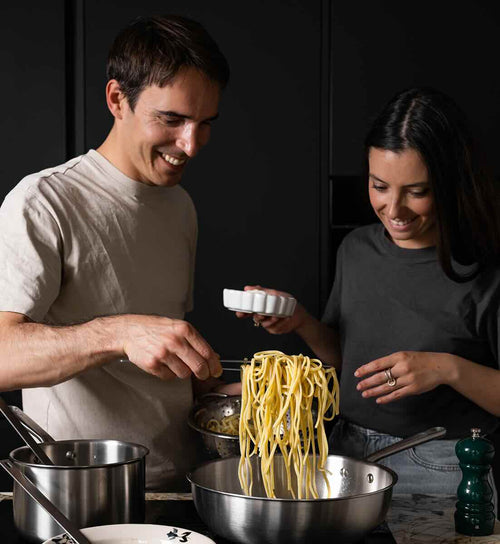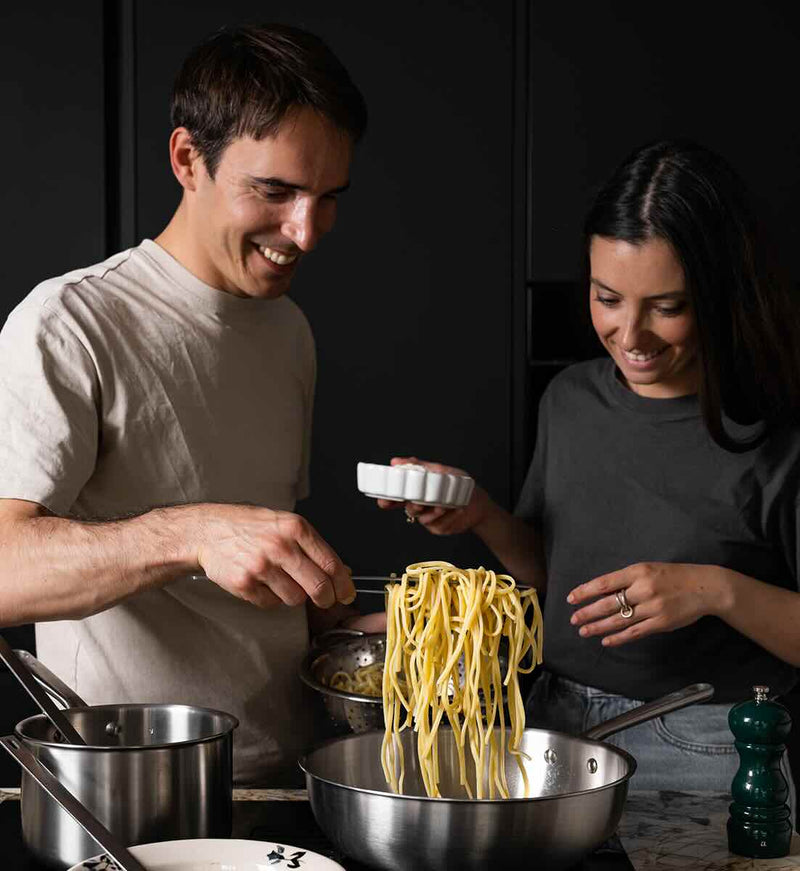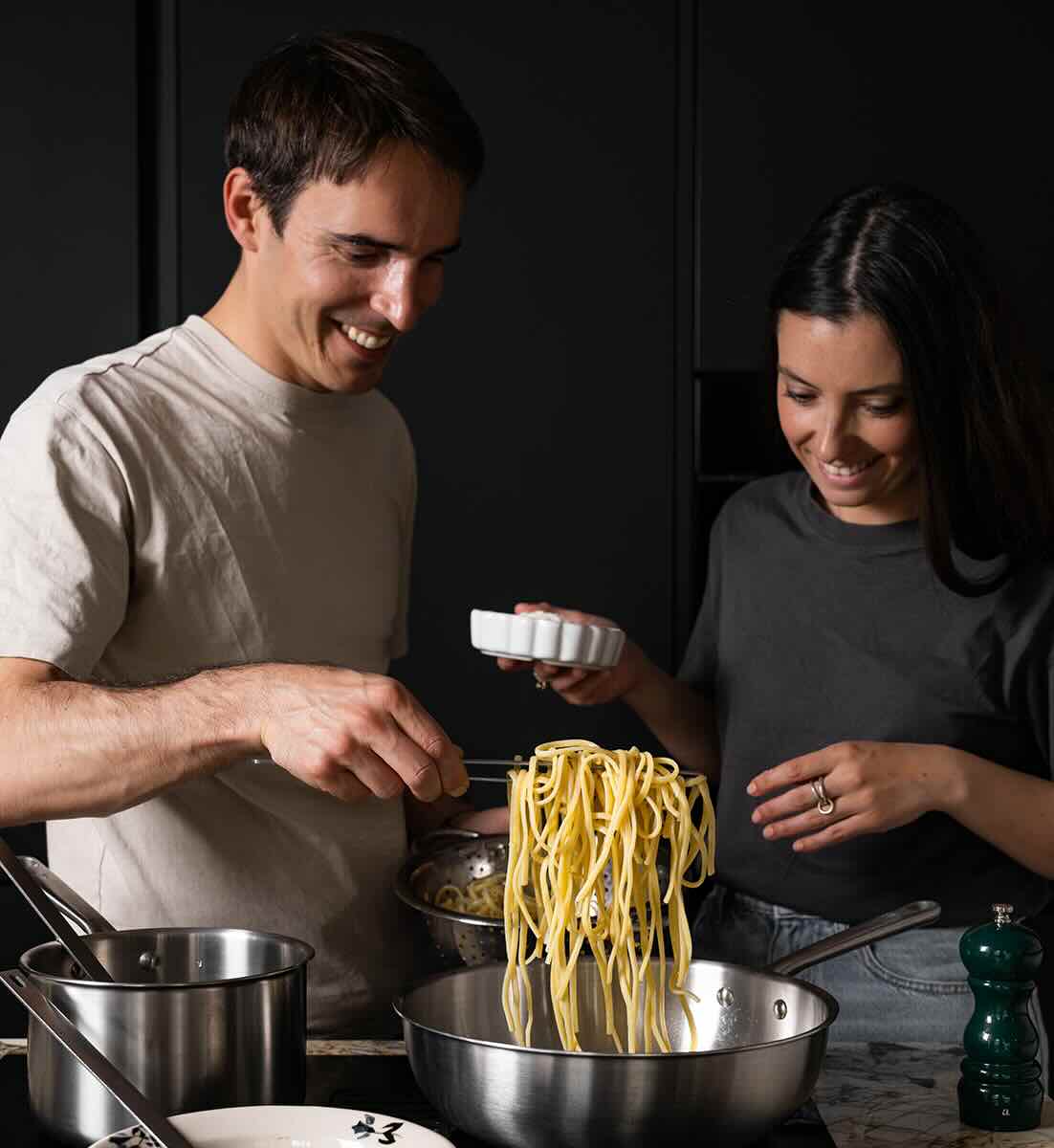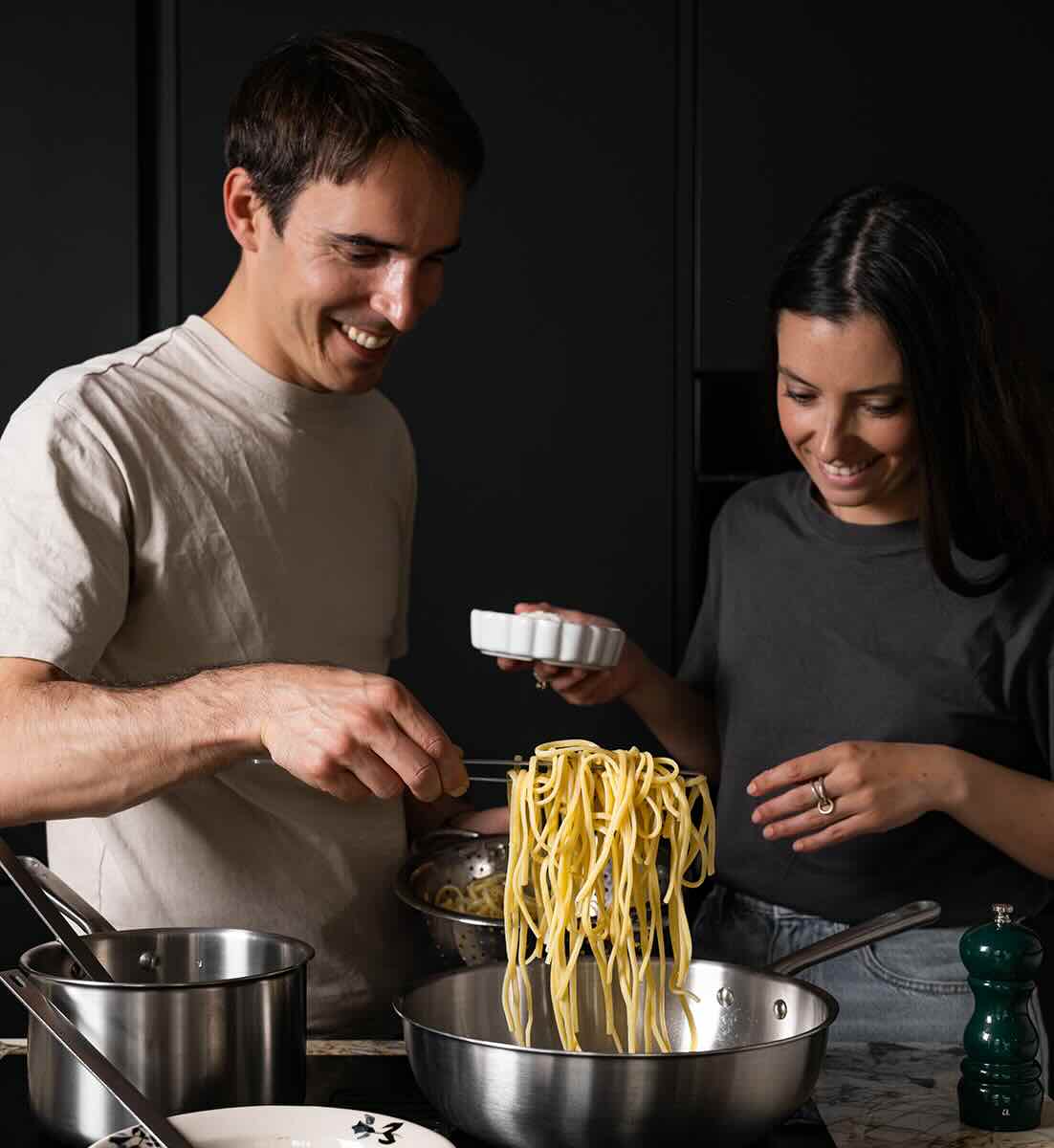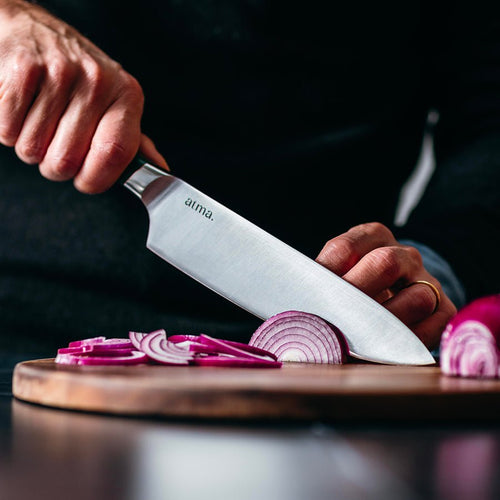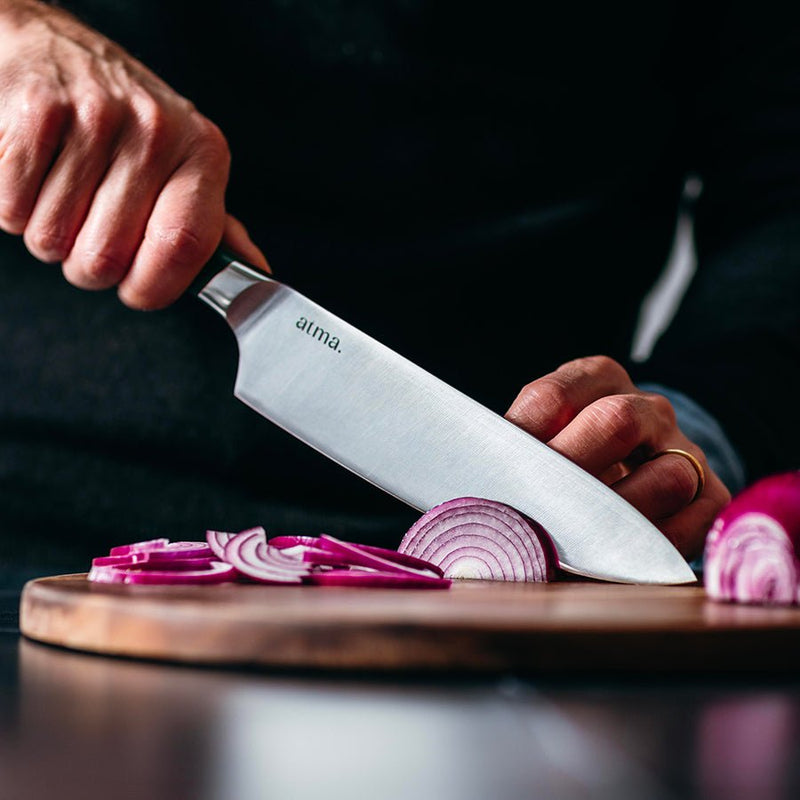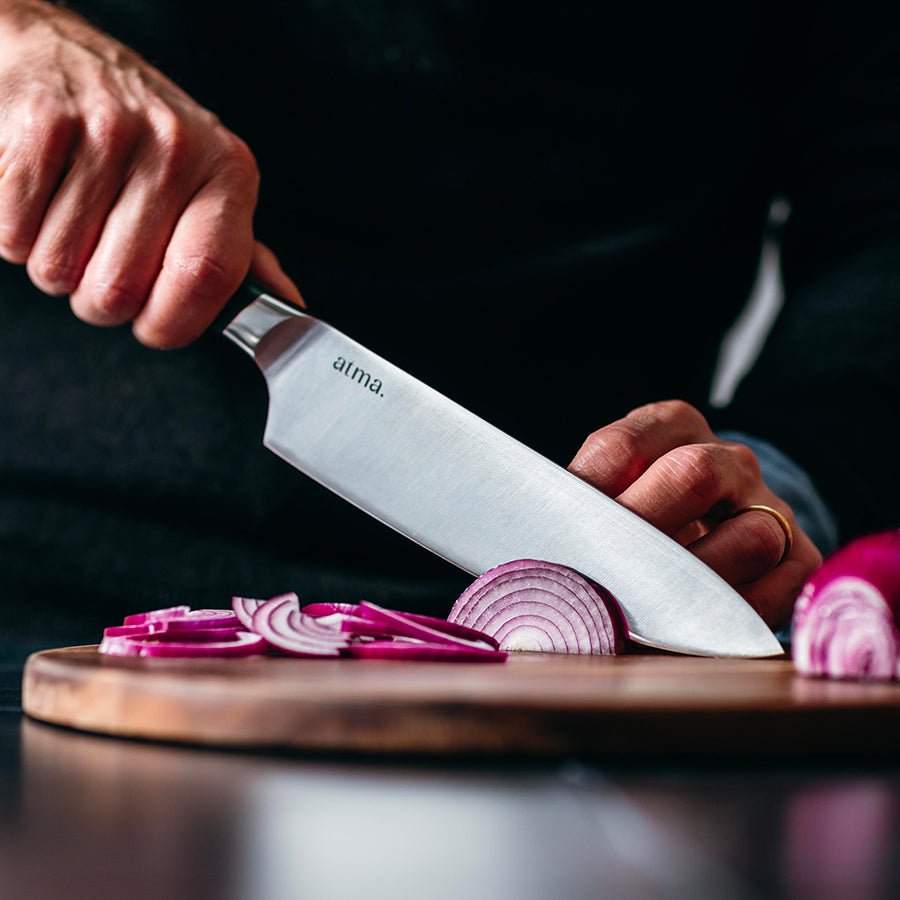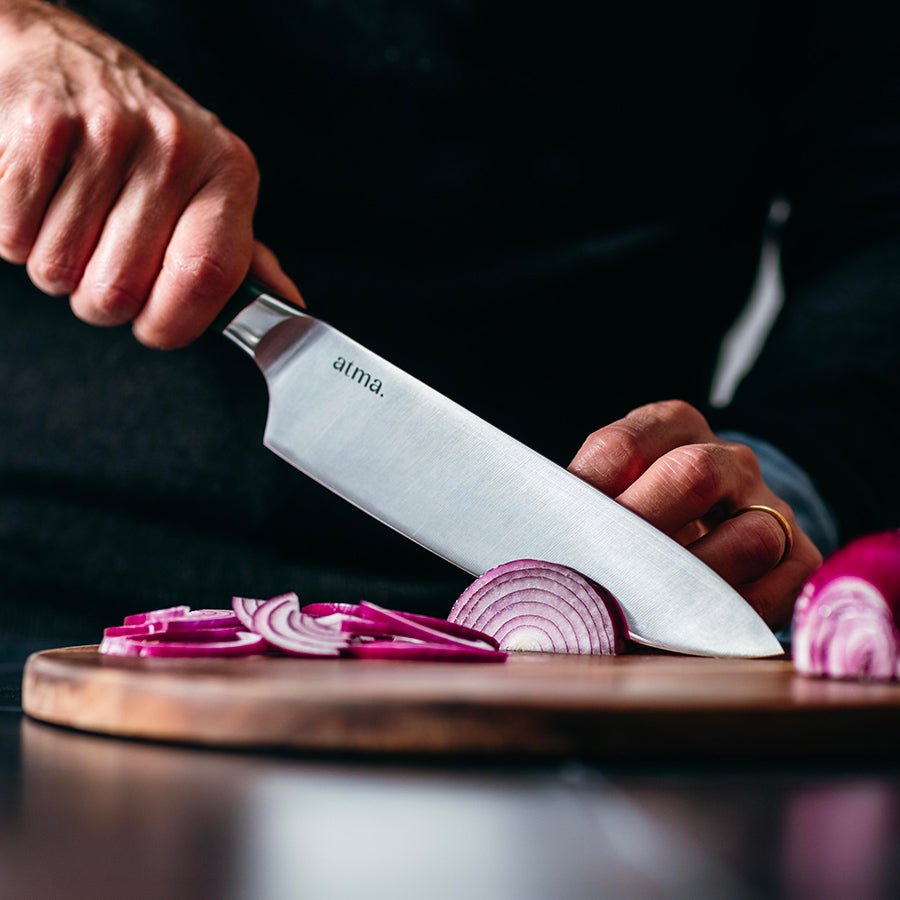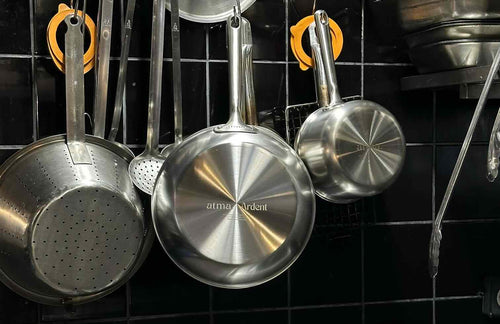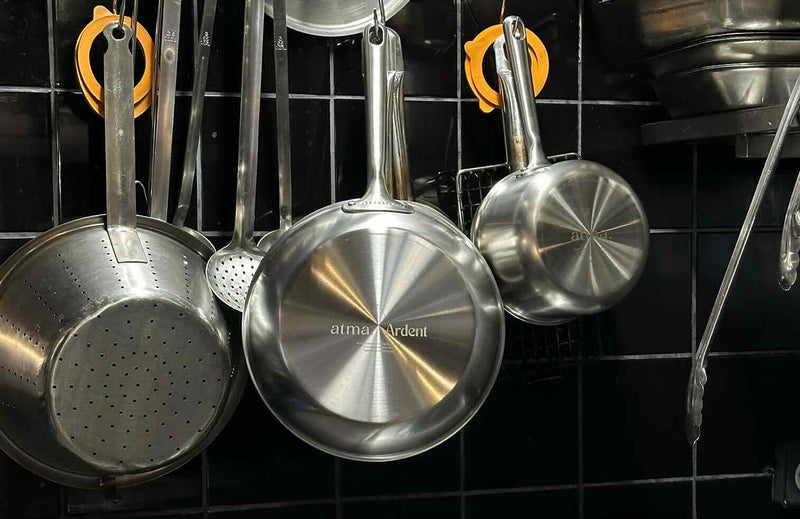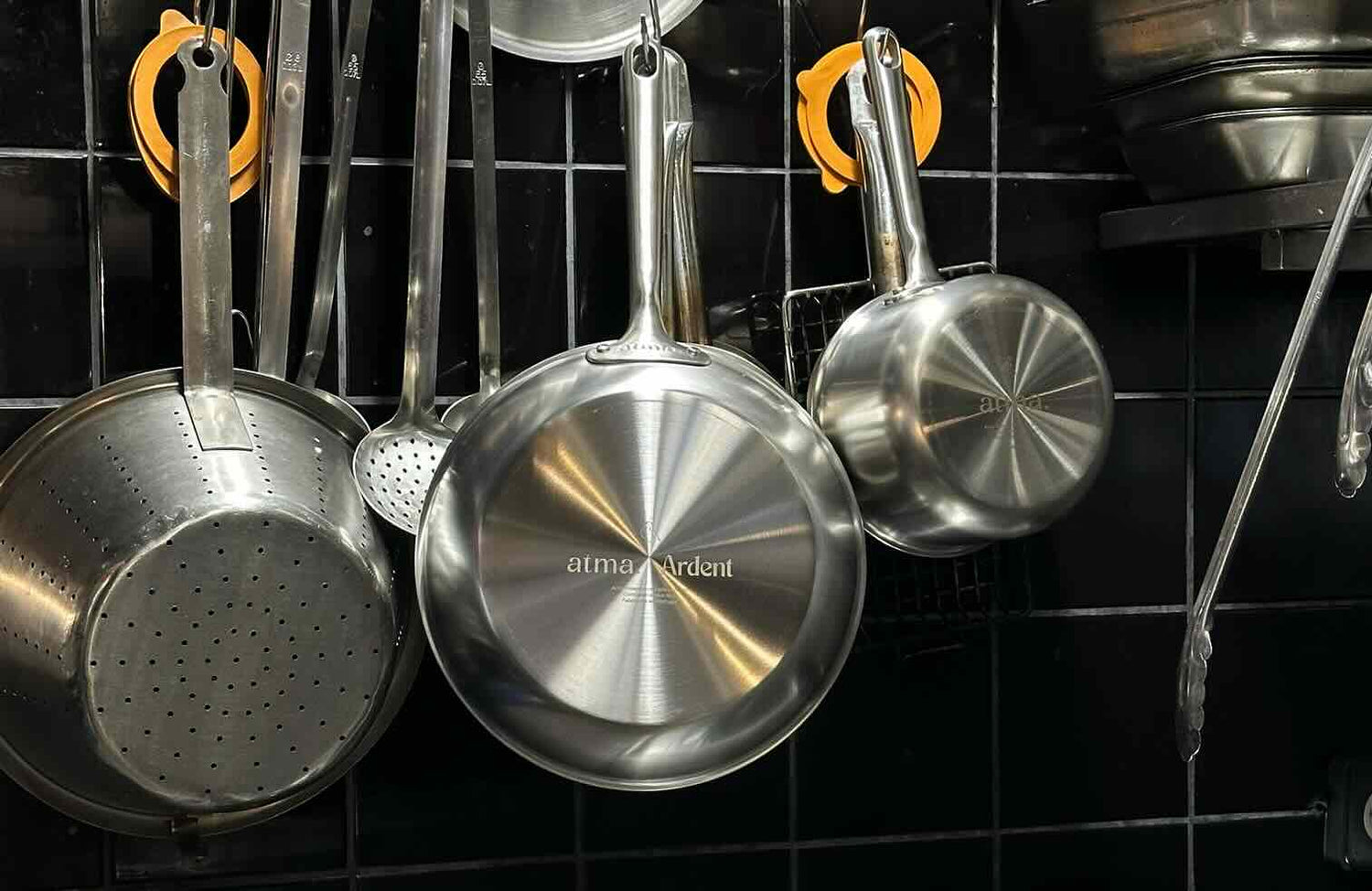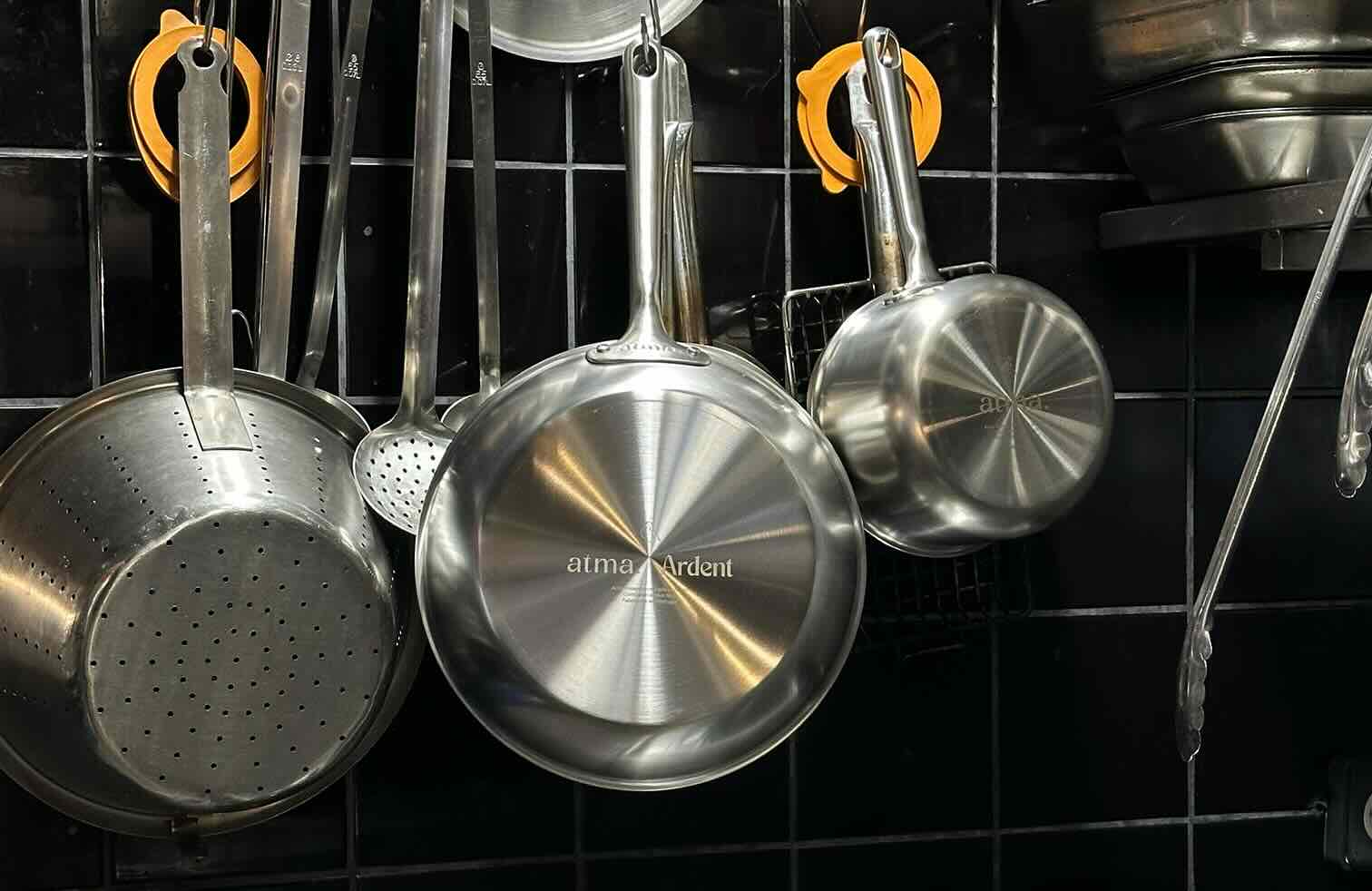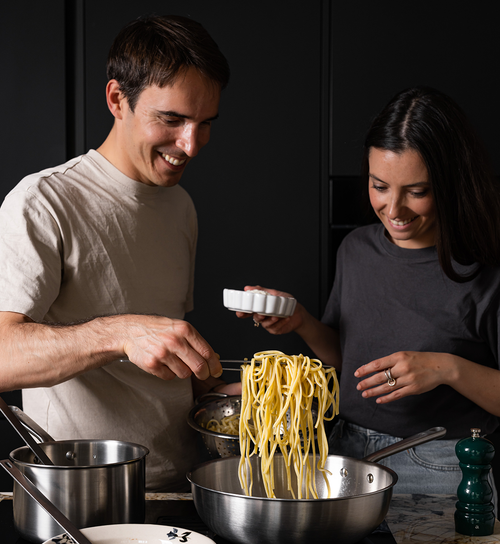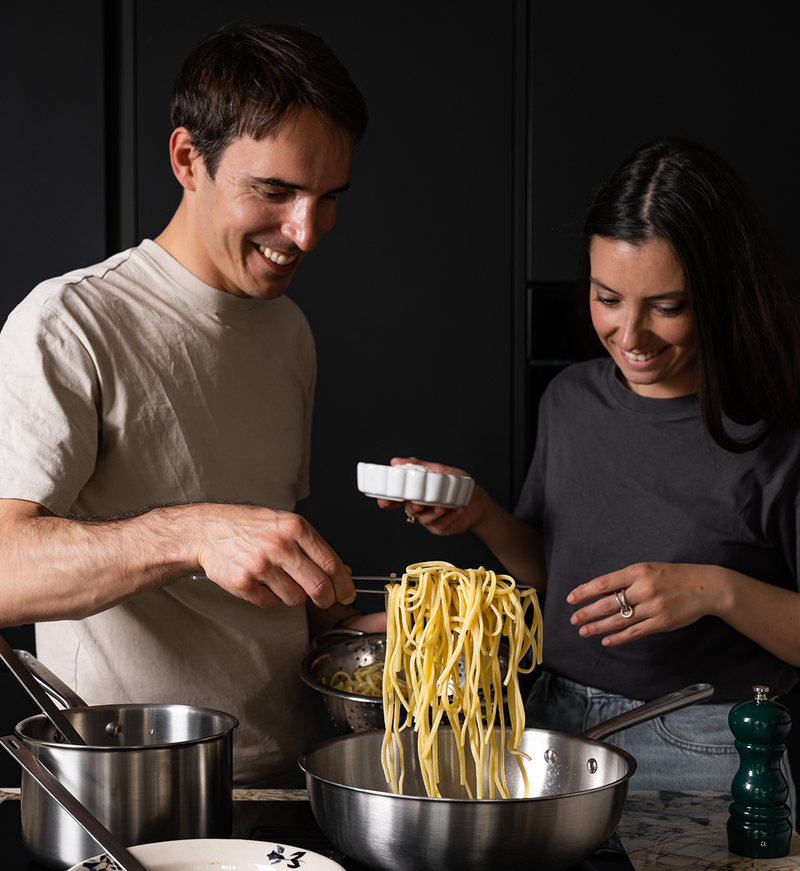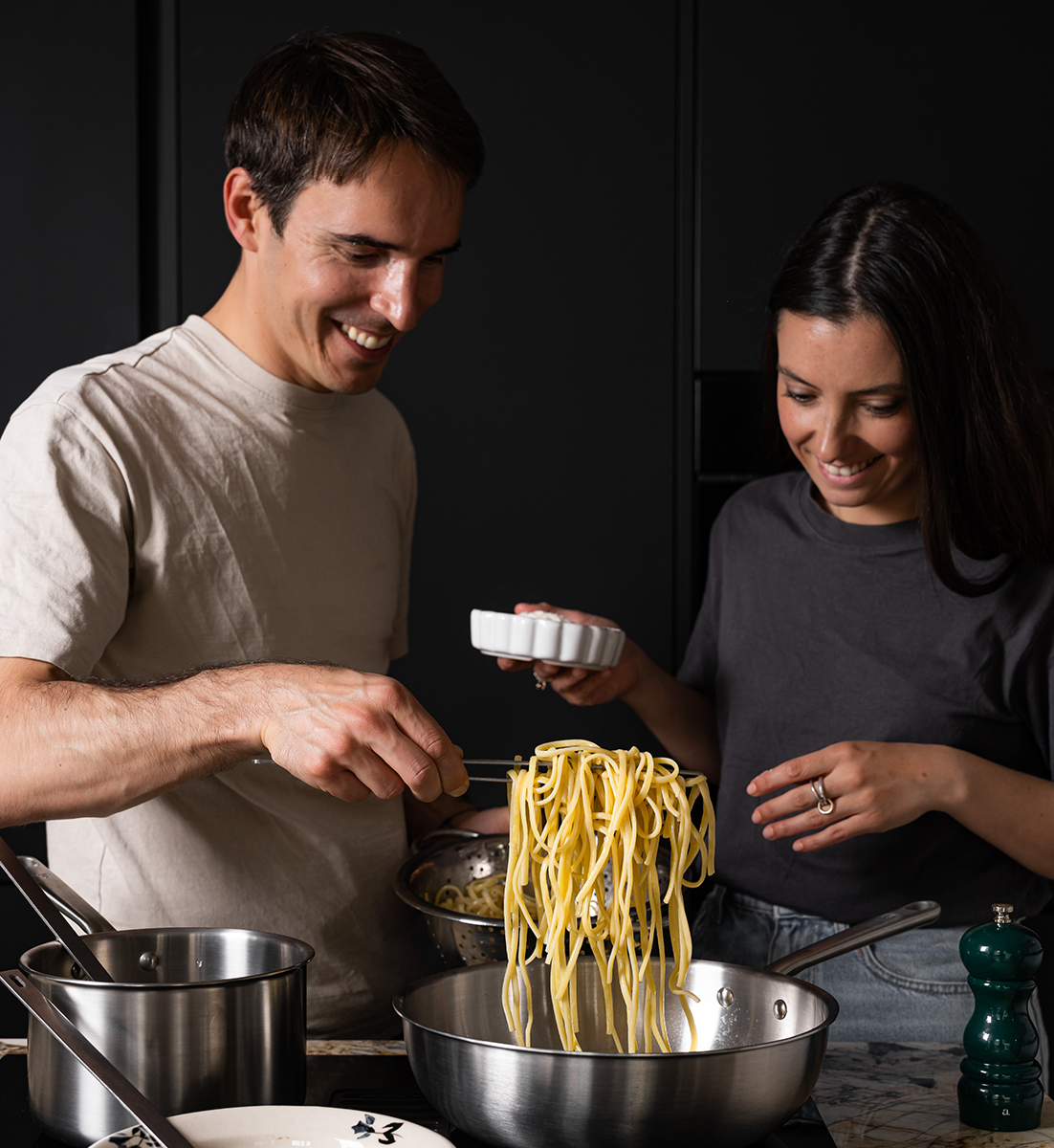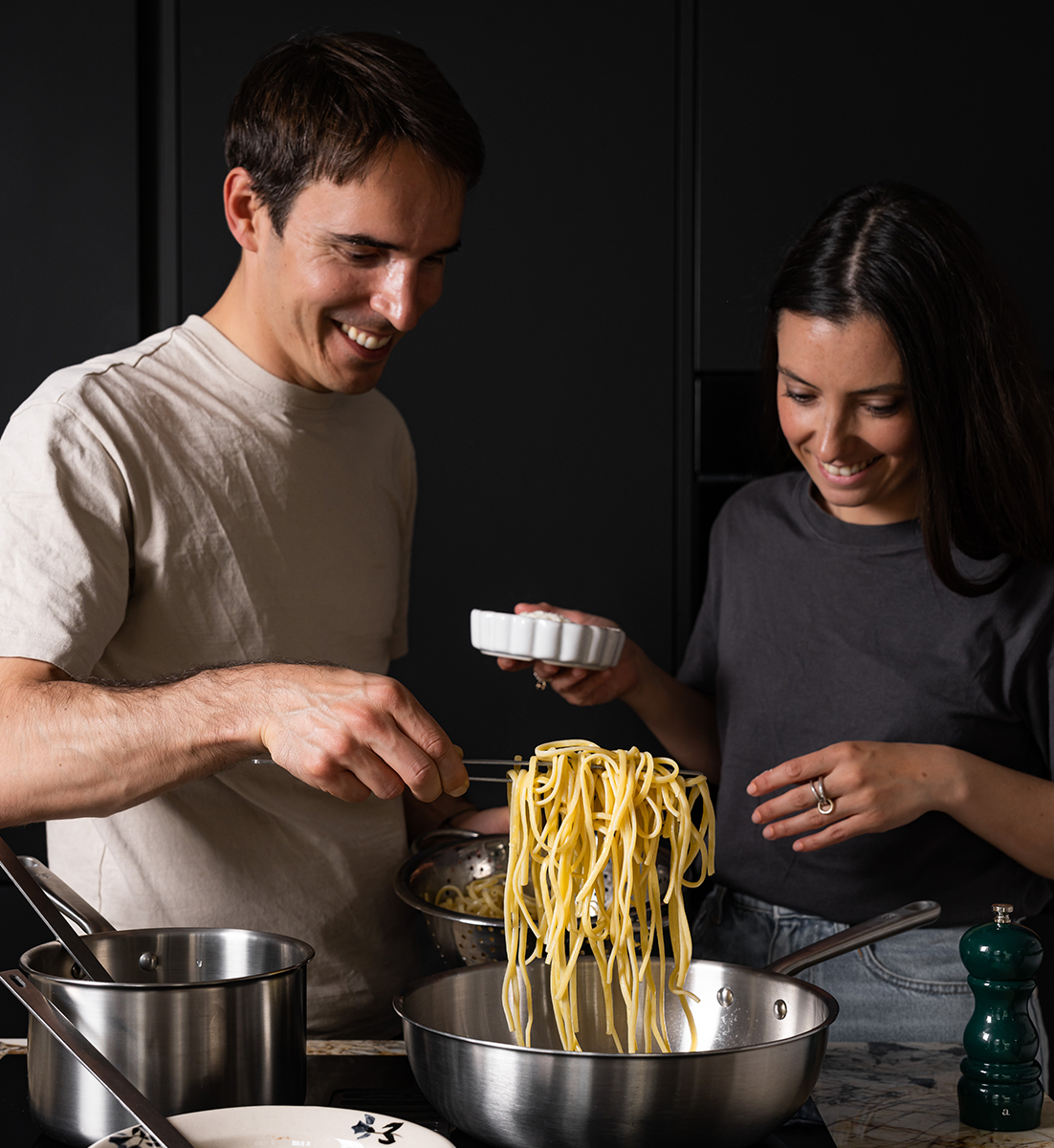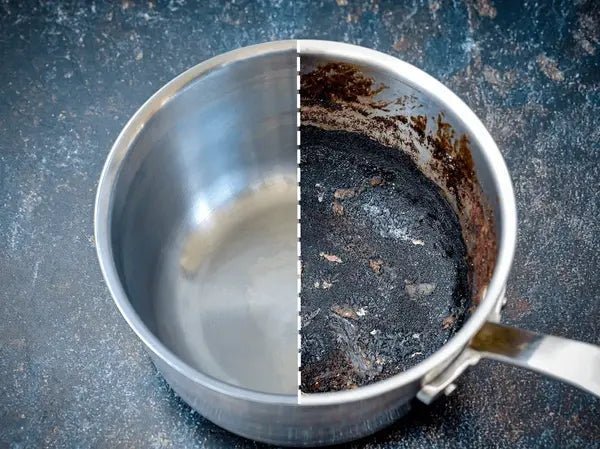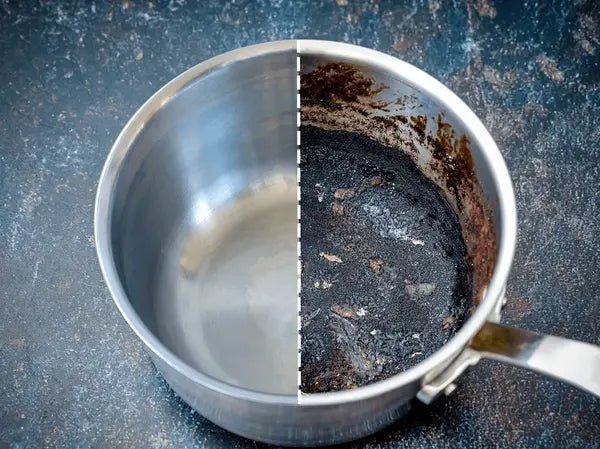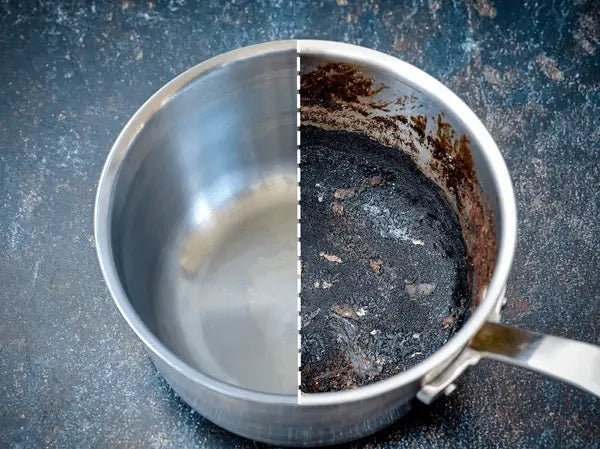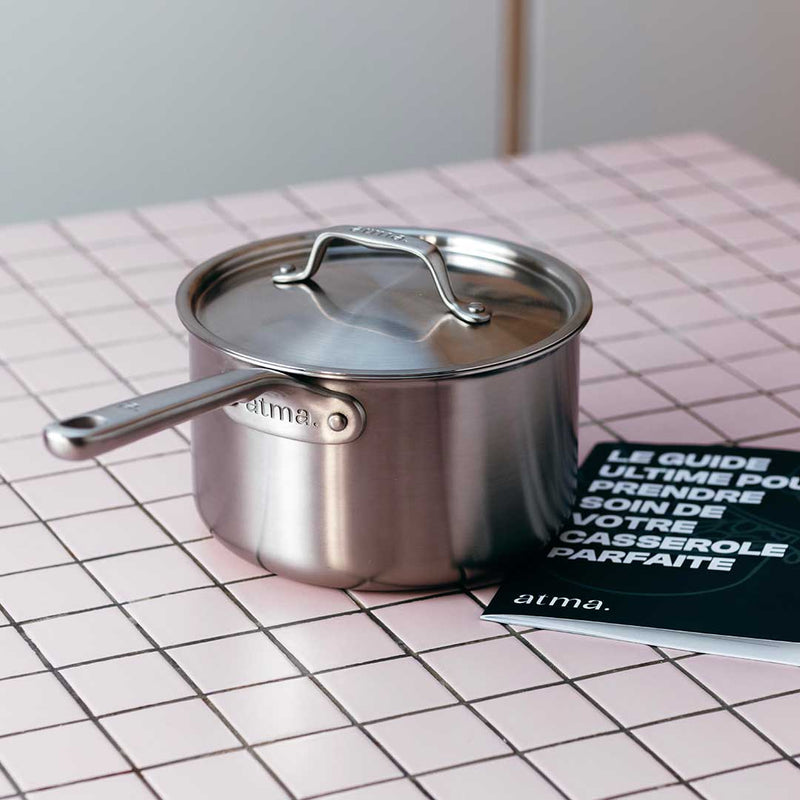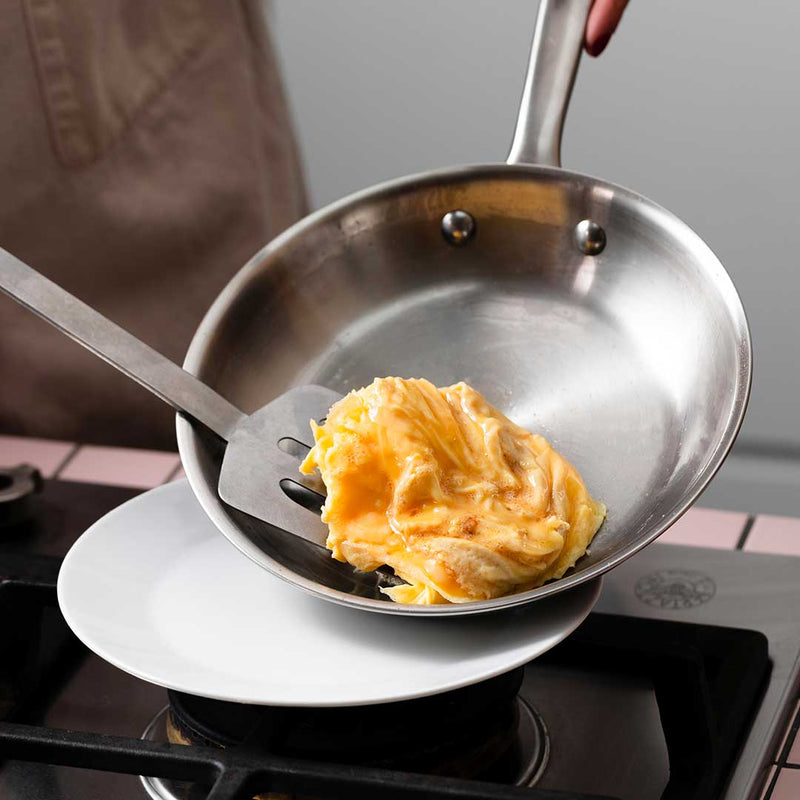You could find yourself in this situation by cooking on too high a heat for too long, or by briefly forgetting your pan on the stove, which would cause your food to burn. Don't worry, here are some tips, just like your grandmother's advice, for restoring your stainless steel pan (and even your stainless steel pan).
Adopt the right daily habits:
1 - To easily clean your stainless steel pan, whether it's burnt or not, take advantage of the residual heat at the end of cooking to deglaze it with room-temperature water. Then scrape off the residue with a wooden spoon.
2- Next, let your pan cool before cleaning it to avoid burns and thermal shock. Then, a little hot water, soap (or dish soap), and a soft sponge (or cloth) without abrasive edges will do the trick. Of course, if you have a dishwasher, you can let it do most of the work before tackling any remaining marks.

Now, our tips for cleaning a burnt pan:
Our multi-purpose white stone is the ideal tool for cleaning, protecting, and shining all your stainless steel utensils: frying pans, saucepans, sauteuses, woks, etc.
Our super cleaner offers a versatile solution for cleaning, polishing, and protecting various materials and effectively removes dirt without leaving any residue.
Using Atma's super cleaner is very simple:
- Moisten the provided sponge. Rub the sponge on the white stone. Work into a lather.
- Clean the desired surface. To scrape and remove stubborn burnt stains, use a light abrasive like a copper scraper to really remove all traces. If you're not too keen on scratching, you can also use the abrasive side of your sponge. This will cause slight scratches to appear, but since you'll be keeping your pan for 20 years, unfortunately, scratches will eventually appear.
- Rinse thoroughly with clean water.
And there you have it!
Another effective cleaner for burnt pans: salt
To restore your burnt stainless steel pan, consider salt, a well-known ingredient in every kitchen!
- Start by pouring a thick layer of salt into the pan.
- Then, add a little water to form a paste.
- Rub with a sponge.
- Then, rinse thoroughly with hot water.
A natural option that's also effective for removing burnt-on food stains from your stainless steel pans: Citric acid
Citric acid is an effective solution for stubborn burnt-on deposits.
- Simply fill the pan with water. hot.
- Then add a tablespoon of citric acid (or the juice of half a lemon, roughly).
- Let it soak for one hour.
- Then scrub with a sponge.
We would like to inform you that citric acid is not dangerous, but it is essential to take precautions when using it. Although non-toxic, it can cause eye and skin irritation. It is therefore advisable to wear gloves and avoid contact with eyes and skin.
Finally: wood ash
A lesser-known technique, wood ash is a natural product with cleaning and abrasive properties. It is also antibacterial, making it an excellent choice for cleaning kitchen utensils. It will allow you to clean burnt marks on your stainless steel pans, while polishing them to restore their shine.

Combine white vinegar and baking soda for an all-in-one solution!
At Atma, we like to use the following tried-and-true technique: a clever mix of white vinegar and baking soda.
- Start by filling your pan with equal parts water and white vinegar. The liquid should fill three-quarters of the pan and cover as much of the stain as possible.
- Then, pour in a tablespoon of baking soda. As soon as foam forms, place your pan on medium heat and let the baking soda solution boil. We recommend letting it boil for 10 minutes. li> Finally, let the pan cool for a few minutes before scrubbing it with a non-abrasive brush. If the stains are stubborn, you can use a copper scraper to avoid scratches or even a wooden spoon. li> Did we lose you? We have a short video to get you on the right track. We also talk about it in this article on daily maintenance of stainless steel pans! This will help avoid creating tiny scratches on your pan while still allowing you to scrub a little harder.
- To add extra shine to your pan, you can also add a little lemon juice to your sponge to clean it. Lemon juice disinfects, cleans, and shines stainless steel, whether it's for your pots, pans, or skillets.
























